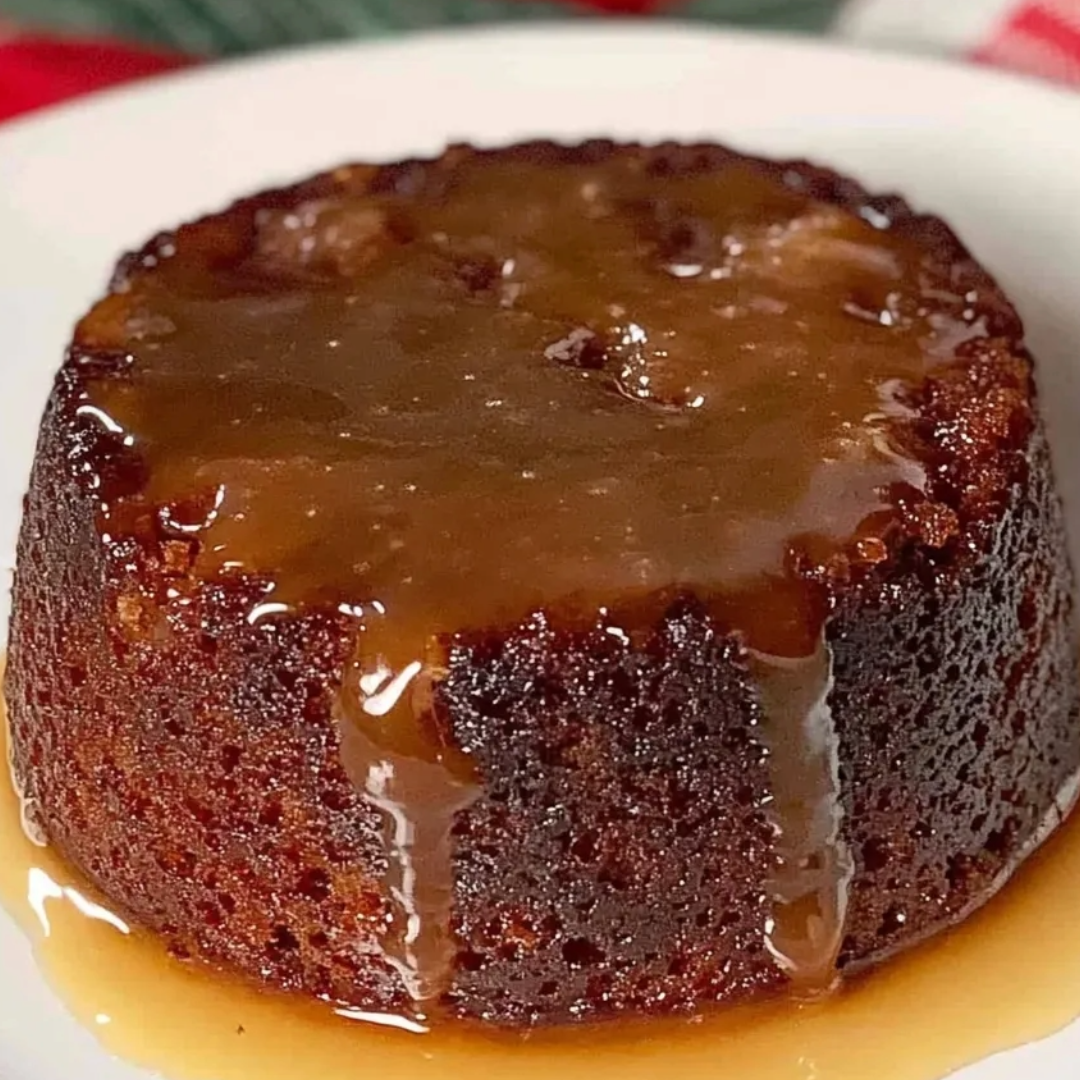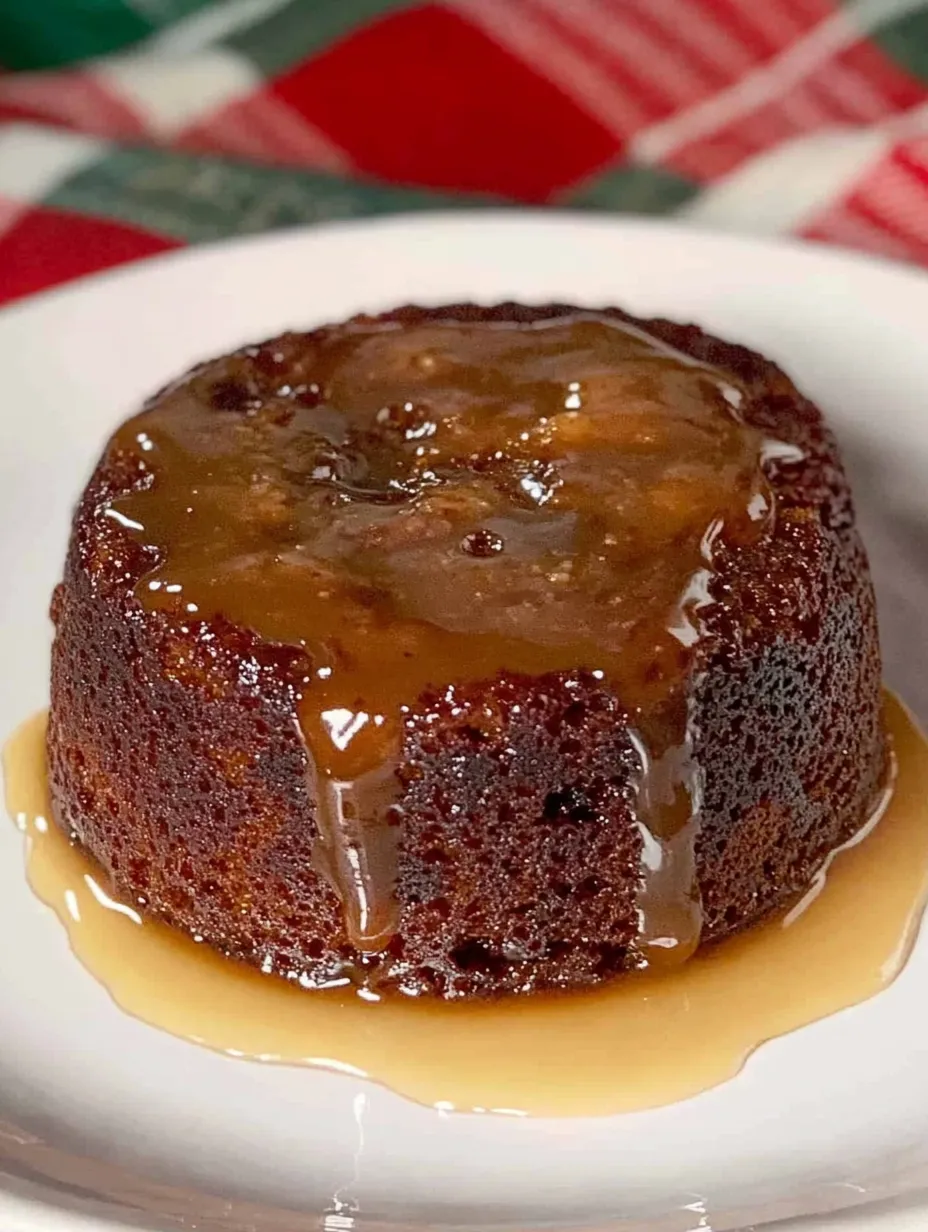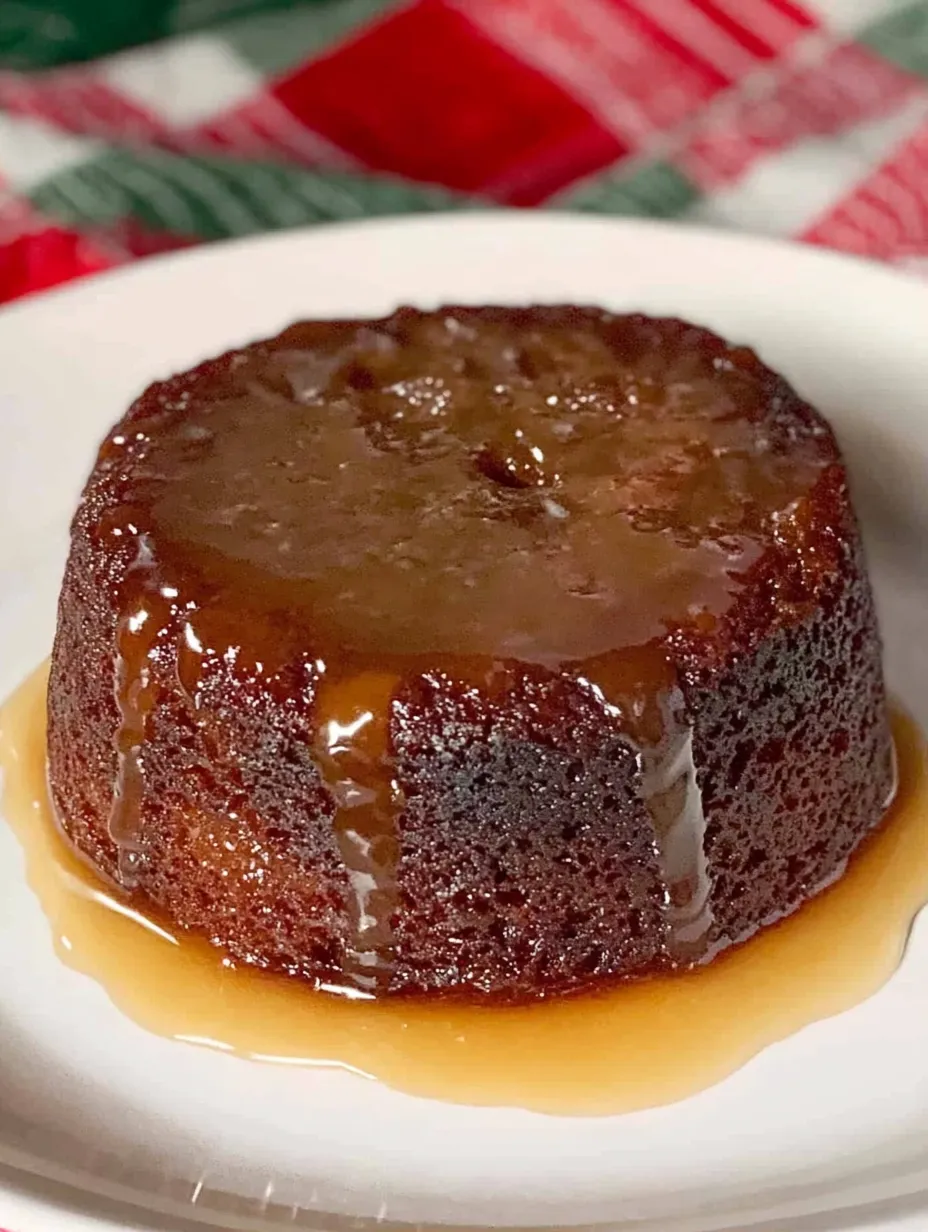 Pin it
Pin it
Sticky toffee pudding delivers the perfect balance of rich, date-infused sponge cake and buttery toffee sauce for an indulgent British dessert experience that feels both comforting and elegant. These individual molasses cakes burst with deep caramel notes from golden syrup and brown sugar, while softened dates melt seamlessly into the batter, creating unparalleled moisture and natural sweetness. Crowned with a velvety toffee sauce that cascades down the sides, this quintessential British treat transforms simple ingredients into something truly extraordinary – a warm, satisfying dessert that pairs perfectly with afternoon tea or provides a spectacular finale to any special meal.
I discovered my love for sticky toffee pudding during a rainy afternoon in the English Lake District, where it originated. After testing numerous versions at home, this recipe captures that authentic experience perfectly. When I served it at our family's traditional afternoon tea gathering, even my pickiest relatives were scraping their plates clean and requesting the recipe!
Ingredients and Selection Tips
- Dates: Medjool dates provide the best rich flavor and soft texture; remove pits before chopping
- Golden Syrup: Essential for authentic flavor; find in international aisles or substitute light corn syrup in a pinch
- Molasses: Provides deep, complex flavor; use unsulphured for best results
- Brown Sugar: Dark brown adds more molasses notes; light brown works but with milder flavor
- Butter: European-style with higher butterfat creates exceptional richness in both cake and sauce
- Heavy Cream: Full-fat (36%) produces the silkiest toffee sauce; don't substitute with half-and-half
 Pin it
Pin it
Detailed Cooking Instructions
- Step 1:
- Begin by preparing your dates, which provide essential moisture and natural sweetness to the cake. Place 1 cup (about 8 ounces) of pitted, roughly chopped dates in a medium saucepan with 1¼ cups of water. Bring this mixture to a boil over medium-high heat, then reduce to a simmer and cook for 2 minutes until the dates begin to soften and break down.
- Step 2:
- Remove the saucepan from heat and stir in 1 teaspoon of baking soda. The mixture will foam dramatically – this is expected! The alkaline baking soda helps break down the dates' fibers, allowing them to melt seamlessly into the cake batter. Set this mixture aside to cool slightly while you prepare the cake batter.
- Step 3:
- Preheat your oven to 350°F (175°C) and prepare your baking vessels by thoroughly coating 8 individual 6-ounce ramekins (or 6 8-ounce ramekins) with baking spray containing flour. Place these on a rimmed baking sheet to catch any potential overflow during baking and make transferring in and out of the oven easier.
- Step 4:
- In a large mixing bowl, combine ½ cup (1 stick) of softened unsalted butter, ¼ cup of golden syrup, ¾ cup of dark brown sugar, and 2 tablespoons of molasses. Using an electric mixer, beat on medium speed until the mixture is light and creamy, approximately 3-4 minutes. This thorough creaming process incorporates air, helping the cakes rise properly.
- Step 5:
- Add 2 large eggs, one at a time, beating well after each addition to maintain the emulsion. Stir in 1 teaspoon of pure vanilla extract. Don't worry if the mixture appears slightly curdled at this stage – it will come together when you add the dry ingredients.
- Step 6:
- In a separate bowl, whisk together 1½ cups of all-purpose flour, 1½ teaspoons of baking powder, and ¼ teaspoon of salt to ensure even distribution of the leavening agents throughout the cake. This uniform distribution helps the cakes rise evenly and maintain a tender crumb.
- Step 7:
- Gradually fold the flour mixture into the wet ingredients using a rubber spatula, being careful not to overmix. Then gently incorporate the date mixture, including all the liquid. The batter will be relatively loose compared to typical cake batters – this is correct and ensures a moist final product.
- Step 8:
- Divide the batter evenly among the prepared ramekins, filling each about three-quarters full to allow room for rising during baking. Place the baking sheet with filled ramekins in the preheated oven and bake for approximately 25-30 minutes, until the tops are golden brown and a cake tester inserted into the center comes out clean.
- Step 9:
- While the cakes bake, prepare the toffee sauce by combining ¾ cup of heavy cream, ½ cup (1 stick) of unsalted butter, 1 cup of dark brown sugar, and 2 tablespoons of golden syrup in a medium saucepan over medium heat. Bring to a gentle simmer, stirring constantly to prevent burning.
- Step 10:
- Continue simmering the sauce for 3-5 minutes until it thickens slightly, then remove from heat. The sauce will continue to thicken as it cools but should remain pourable. Transfer to a serving pitcher if serving immediately, or store in a sealed container if making ahead.
I discovered these tips through my own experimentation with this recipe. The first time I made it, I served the cakes piping hot from the oven, but found that allowing them to cool slightly actually improved both the flavor and texture, while making the unmolding process much easier.
 Pin it
Pin it
The first time I served sticky toffee pudding to American friends unfamiliar with British desserts, they were skeptical about the inclusion of dates. After one bite, they were completely converted! What makes this dessert truly special is how the humble ingredients transform through careful technique into something that tastes far more complex and sophisticated than its parts would suggest. The dates completely dissolve into the cake, leaving behind only their honeyed sweetness and incredible moisture. Meanwhile, the homemade toffee sauce creates that perfect "sticky" quality that gives the dessert its name. While certainly indulgent, there's something wonderfully comforting about this traditional British treat – perhaps it's the way it connects us to centuries of dessert-making tradition, or simply the universal pleasure of warm cake topped with buttery sauce. Either way, it's a dessert that deserves a permanent place in your repertoire.
Frequently Asked Questions
- → Can I make sticky toffee pudding without dates?
- Dates are essential to authentic sticky toffee pudding, giving it moisture and natural sweetness. While you could substitute prunes, the flavor won't be traditional.
- → What can I use instead of golden syrup?
- You can substitute honey, agave syrup, or brown rice syrup, though these will slightly change the classic flavor.
- → Can sticky toffee pudding be frozen?
- Yes! The cakes freeze beautifully for 2-3 months. Wrap tightly in plastic wrap and store in a freezer bag. The sauce should be stored separately in the refrigerator.
- → Is sticky toffee pudding actually a pudding?
- In British cuisine, 'pudding' often refers to desserts in general. This is actually a moist cake, not a custard-style pudding as Americans might expect.
- → What's the best way to serve sticky toffee pudding?
- Serve warm with the toffee sauce poured over top. For extra indulgence, add a scoop of vanilla ice cream or a dollop of whipped cream.
